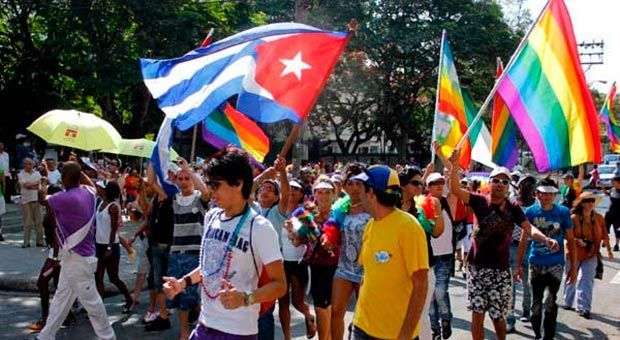The inclusion among the fundamental principles governing the right to work in Cuba of non-discrimination based on sexual orientation is one of the changes made to the bill of the Labour Code that the Parliament discusses this Friday.
As we proposed last August, the addition in Section 2 of this legislative proposal, which is now defined in subsection b the principle of “equal work” with the following statement, prospered:
“Any citizen able to work has the right to obtain employment in response to the demands of the economy and the election, both in the state and non-state sector, without regard to skin color, gender, religious beliefs, sexual orientation, territorial origin and any other offensive distinction against human dignity “.
It also stands out the correct adoption of the term “gender” instead of the restrictive word “sex” that was in the draft and the suppression of “race” as other activists asked to leave the target “skin color”.
As a kick in the same statement, however, stands the elimination of “political opinion” among the elements which is not acceptable to discriminate on the job, something that itself was in the original and now will stay unfortunately only implicit.
Cuban lawmakers and politicians also seem to still not understand the concept of “gender identity” because this time I also added between explicit details, as happened in January 2012 at the First Conference of the Communist Party of Cuba that defined the current policy of confronting any kind of discrimination.
Notwithstanding these limitations in the redefinition of that principle, the project that reaches parliamentary debate constitutes a significant step forward for the rights of homosexuals in the Caribbean country, for its approval will make Labour Code the first law of history that provides specific protection for this population sector.
Discrimination based on sexual orientation in access to employment and the workplace, one of the problems as a result of homophobia that is still more common in Cuban society; with this new law could be cause for complaint with various bodies of law.
As established in the chapter on conflict resolution work in this project, workers have the right “to promote actions for the recognition, restoration and fulfillment of the rights of labor and social security, enshrined in law, to the organs, authorities and bodies in charge.”
So, as the new law endorses unequivocally said discrimination clause, a gay worker or lesbian employee may go in case of an alleged injustice because of their sexual orientation to the bodies of labor courts in the first instance – if you have an state employer – , the municipal court as a second step, and even the Supreme Court case that conditions exist for a process for review of judgment.
Given this type of conflict that deal with the right to work, allegedly also may use the courts those who work as salaried employees or for private employers in a cooperative or any other form of non-state ownership or management .
If finally the Parliament adopts in the current regular session of the Labour Code with such modifications , Cuba happen to be among nations that have “laws that prohibit discrimination because of sexual orientation,” as recognized by the International Association of lesbian, Gay, Bisexual , Trans and Intersex Association (ILGA , for its acronym in English ) , in which the island is actively involved .
Not only we would stop belonging to the group of countries listed in the annual ILGA maps under the caption “no specific legislation” but would give a strong and concrete sign of progress in the respect for freedom of sexual orientation and identity gender, not only in the educational and cultural field but also on the rights.
And most important: this success, in addition to an act of elementary justice, constitute a propitiatory signal to other legislation, such as the imperative and urgent, the new Family Code, as well as the meritorious result of hard work of persuasion and advocacy for part of a larger social network of activists and members of the lesbian, gay, bisexual, transgender and heterosexual people in Cuba we strive to achieve greater unity in diversity.










